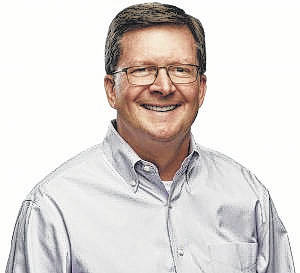Last month, 684 rural advocates from 89 North Carolina counties travelled to Raleigh to let their voices be heard by our state leaders.
It was the Rural Center’s third-annual Rural Day on March 26, and it was the biggest event in our 32-year history working on behalf of rural North Carolina.
The rural champions who joined us heard from national thought leaders about policy initiatives working in other states that may be replicated here to help more rural North Carolinians access affordable high-speed internet, build their own businesses, and nurture healthier communities.
They also heard visions for the future of rural North Carolina from state leaders such as Governor Roy Cooper, Lt. Governor Dan Forest, Senator Phil Berger and Attorney General Josh Stein.
But the voice that resonated the loudest was former Ohio Governor John Kasich. Governor Kasich shared the story of how the Buckeye state came together, working across political differences and party lines, to pass Medicaid expansion and get more hardworking families connected to the healthcare they so desperately need.
“When we get to heaven, St. Peter isn’t going to ask what we did to balance the budget. He’s going to ask what we did for the least of these.” Kasich told the crowd at Rural Day.
“Medicaid expansion is a human issue. This is about your mother, your father, or your neighbor,” Kasich said.
It is estimated that more than 400,000 North Carolinians fall into our state’s health insurance coverage gap, meaning they do not qualify for Medicaid but ironically earn too little to qualify for subsidies on the national marketplace.
Covering the uninsured is certainly a human issue; it is also an economic imperative. These are men and women working every day — some in more than one job — to build a better life for their families, but who simply cannot afford health insurance. Those who fall into our coverage gap may be one hospital visit or health crisis away from economic catastrophe.
Closing the coverage gap would mean healthier families, and healthier families mean a healthier economy. It would mean more jobs and a more reliable workforce in our rural
communities. Closing the gap would give our state an estimated $21.5 billion economic boost and create over 43,000 jobs over four years.
It also would mean more secure healthcare systems in our most economically distressed areas. A vibrant health sector is an economic catalyst for rural communities, bringing good jobs, a higher quality of life, and a more competitive landscape for recruiting other industries. Without financially stable hospitals, rural communities struggle to keep the businesses they have, and are at an immediate disadvantage in attracting new ones.
However, it is estimated that seven of our state’s rural hospitals are financially vulnerable and at risk of closing, which would mean a loss of an estimated 2,360 healthcare jobs and a decline of $2.7 billion in our state’s GDP.
Closing the coverage gap is not the answer to all of our rural health challenges, but it is a vital first step.
It is time we acted. Several plans have been put forward — some to simply expand Medicaid, others to create a North Carolina-specific solution. Whatever the exact policy, it is time to work together, as Republicans and Democrats, as rural and urban communities, to close our state’s health insurance coverage gap.
The health of our rural people and our rural economy depend on it.

